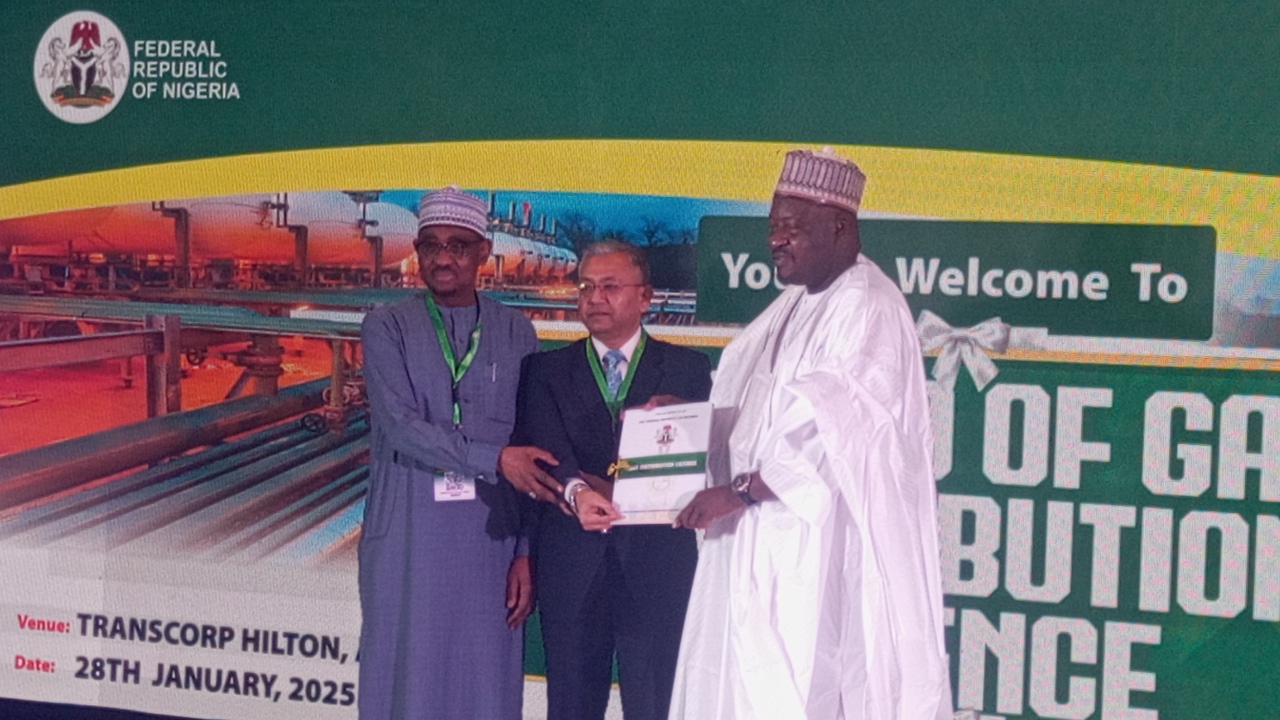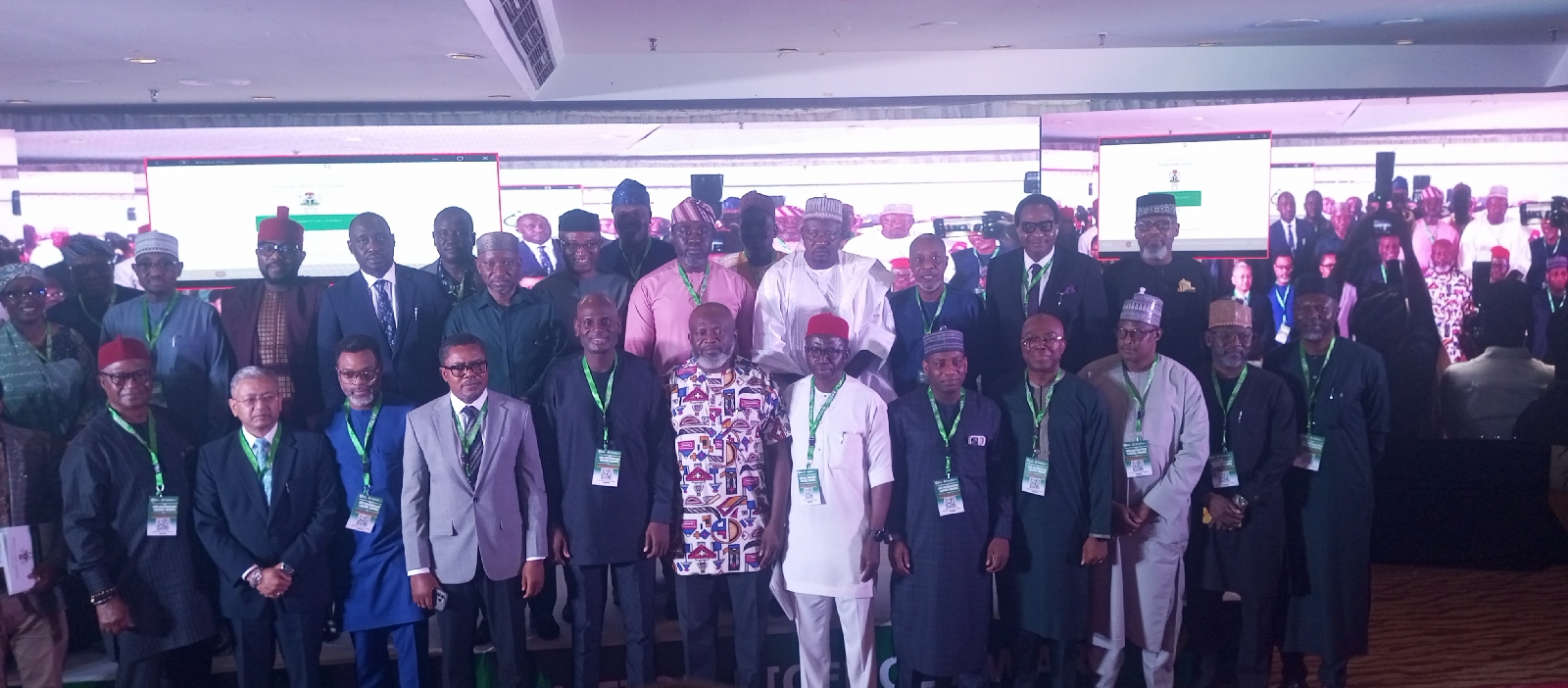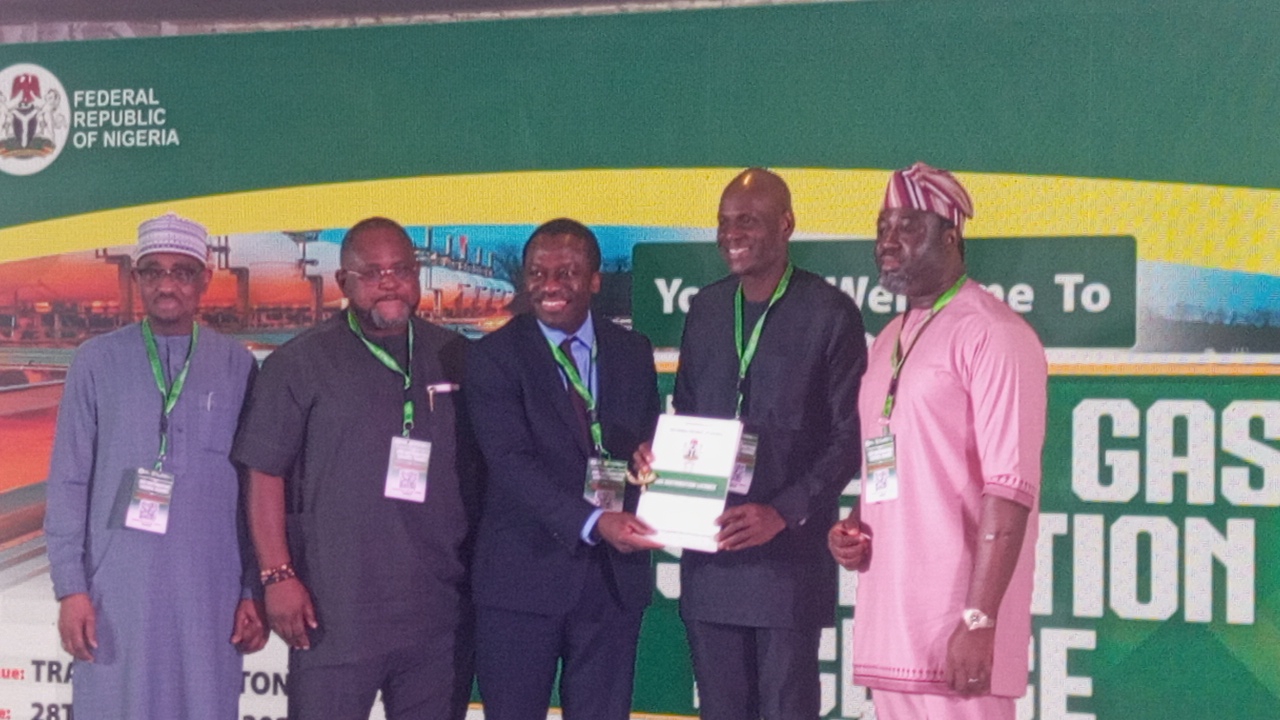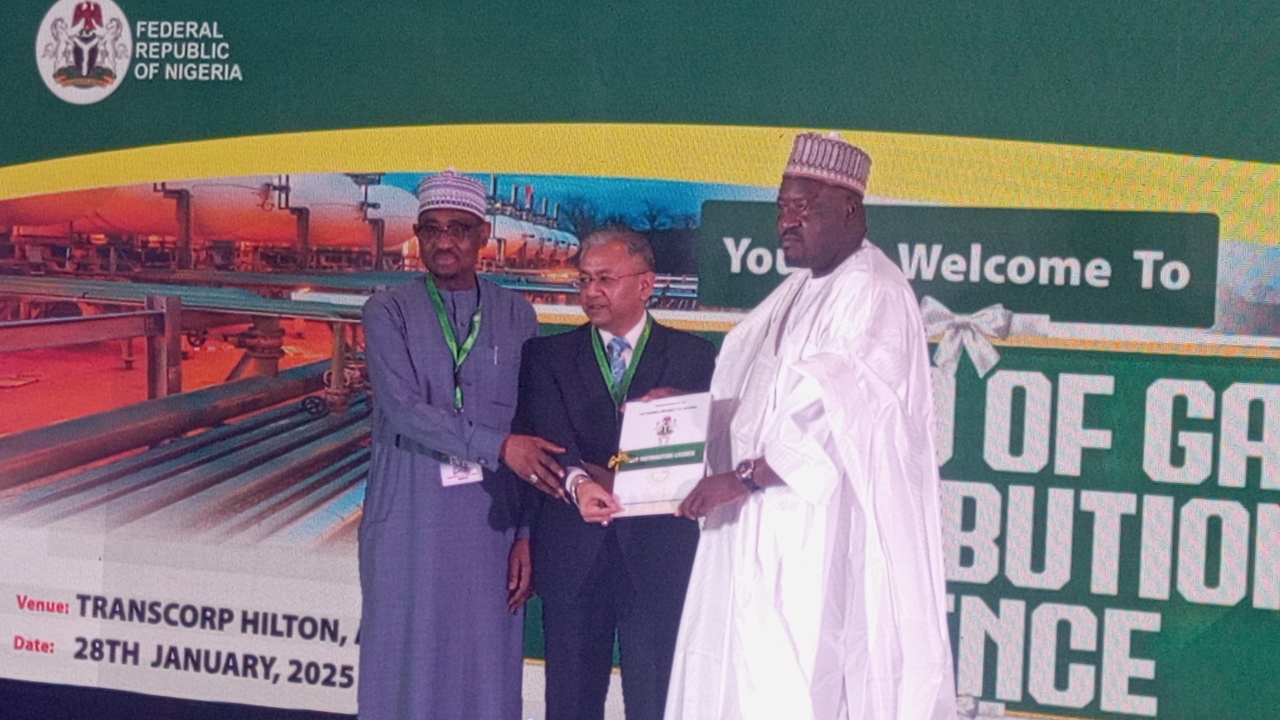The Federal Government Awarded Ten Gas Distribution Licenses in Nigeria
On Tuesday for Nigeria’s energy sector, the government awarded ten gas distribution licences (GDL) to six companies as part of an initiative aimed at enhancing the country's gas utilisation drive. This aim is not only pivotal in meeting national energy demands but also crucial for economic growth and sustainability. The companies receiving these licences—NNPC Gas Marketing Limited, Shell Nigeria Gas Limited, Axxela, NIPCO Plc, Central Horizon Gas Company, and Falcon Corporation Limited—represent a mix of domestic and international players, all of which are poised to contribute to the expansion of Nigeria’s gas infrastructure.
The Minister of State for Gas, Hon. Ekperikpo Ekpo, along with various dignitaries, including Senator Akawu Sumaila, Chairman of the Downstream Committee, and Senator Jarigbe Agom Jarigbe, the Chairman on Gas, presided over the ceremony. Their presence underscored the government's commitment to diversifying Nigeria’s energy sources while ensuring that the country effectively utilizes its abundant natural gas reserves. The awarding of these licences is not merely an administrative task but a strategic move to facilitate the transition from an over-reliance on crude oil to a more balanced energy portfolio that includes cleaner and more sustainable natural gas.
Importance of Gas Distribution Licences
The gas distribution licences are essential for several reasons. Primarily, they enable the appointed companies to operate within the legal framework, thereby fostering an environment of trust and investment in the sector. Furthermore, these licences will allow the companies to develop and expand their infrastructure, such as pipelines and gas processing facilities, which is crucial for ensuring a stable and reliable supply of gas across various regions of Nigeria. Efficient distribution networks will facilitate access to natural gas for residential, commercial, and industrial consumers, which in turn can lead to reduced energy costs and increased economic activities.
By prioritizing natural gas, Nigeria is taking a pivotal step towards addressing its energy challenges. The country has faced persistent energy shortages that have hindered economic growth and development. With the new gas distribution licences, the government aims to enhance the utilisation of natural gas as a cleaner energy source that can drive industrialisation and improve living standards. Natural gas is significantly less polluting than other fossil fuels, and its increased use can promote environmental sustainability, a pressing global concern.
Economic and Environmental Implications
The awarding of these licences represents a broader commitment by the Nigerian government to harness its abundant gas resources. Nigeria is blessed with the largest proven gas reserves in Africa, and maximising this resource can have far-reaching economic benefits. The growth of the gas sector is expected to create jobs, stimulate investment, and support local economies. Moreover, the international market for gas is expanding, providing an opportunity for Nigeria to become a key player in a global energy landscape that is increasingly moving towards cleaner energy solutions.
From an environmental perspective, increasing the use of gas in Nigeria's energy mix can contribute to lowering greenhouse gas emissions, aligning with global climate goals. The promotion of natural gas as a cleaner alternative to coal and oil can play a pivotal role in mitigating climate change impacts while enabling the country to meet its energy requirements efficiently.
The Nigerian government awarded 10 gas distribution licences (GDL) to six companies to improve the country’s gas utilisation drive.
The beneficiary companies are NNPC Gas Marketing Limited, Shell Nigeria Gas Limited, Axxela, NIPCO Plc, Central Horizon Gas Company and Falcon Corporation Limited.
The GDL, as provided in Sections 148-152 of the Petroleum Industry Act (PIA), according to the government, is a licence that gives exclusive right to establish, construct and operate a gas distribution system in a designated local Gas Distribution Zone (GDZ) issued to qualified applicants to distribute gas at the ‘last mile’.
Speaking during the award ceremony in Abuja on Tuesday, the Minister of State for Petroleum Resources (Gas), Ekperikpe Ekpo, explained that the initiative is designed to facilitate affordable and reliable energy supply to drive industrial growth, competitiveness and support for the generation of cleaner and more efficient energy to enhance power availability across the nation.
He added that this is expected to accelerate the adoption of Compress Natural Gas (CNG) as a sustainable fuel alternative in transportation in Nigeria.
“The issuance of the Gas Distribution License comes at a pivotal moment as we intensify efforts to harness the potential of gas as a critical resource for Nigeria’s energy transition and economic transformation. By empowering license holders, this initiative opens extensive opportunities across several key sectors,” Mr Ekpo said.
He said a thriving domestic gas market is crucial to achieving the country’s ambitions under the decade of gas initiative, adding that the gas distribution license framework is a strategic enabler for this vision by expanding the reach of gas infrastructure to underserved areas and deepening gas consumption across residential, commercial, and industrial sectors.
“As we issue the Gas Distribution License to qualified stakeholders today, we reaffirm our commitment to the sustainable development of Nigeria’s vast gas resources and to open up further investments in the gas space.
“This step is not just about meeting regulatory requirements; it is about building a future where gas serves as a foundation for economic growth, industrialisation, and improved quality of life for all Nigerians,” he added.
The NMDPRA Chief Executive, Farouk Ahmed, said the agency received over 30 applications and due diligence was conducted on them in line with defined prerequisites.
“Ten licences are being issued today as part of Phase-1 of the Gas Distribution Licensing regime to operators who have invested significantly in developing gas distribution infrastructures in the designated gas distribution zones and have met the prescribed minimum requirements,” Mr Ahmed said.
He said the licence covers a cumulative gas distribution capacity of approximately 1.5 bscf/d with over 1,200km of gas distribution pipeline network and over 500 customer stations.
He noted that the GDL regime holds a significant opportunity to support the development of the domestic gas market through gas supply to our energy-intensive industries, industrial parks, special economic zones, embedded/captive power generation, mobility CNG schemes and any other downstream gas utilisation programme.
“We envisage that this licence regime shall not only support the accelerated development of our domestic gas market but that it shall create opportunities for profitable investments for various classes of stakeholders, improve the socio-economic impact of gas resources across Nigeria and support our national energy transition plans.
“The GDLs are expected to lay a solid foundation for long-term growth and prosperity, unlock the full potential of our natural gas reserves, enabling the development of new, untapped markets and creating new sources of revenue and employment. These licenses are expected to catalyse investments.
“The GDLs will play an instrumental role in ensuring that Nigeria’s energy future is not just sustainable, but also equitable and accessible to all Nigerians,” he said.
Mr Ahmed said Piped Natural Gas (PNG) provides continuous supply, is cost-effective and safe, and eliminates storage challenges.
“These advantages will not only increase efficiency in how we use energy but will also be essential in meeting Nigeria’s growing energy demands.”
He said the authority should collaboratively work with all GDL holders to ensure that the strategic objectives of these licences, which include the efficient and non-discriminatory supply of gas to all wholesale customers in designated local distribution zones, growing the consumption of natural gas under licensed areas, supporting and accelerating the implementation of the CNG initiatives among others are fully actualised.
According to him, to ensure the efficient and transparent operation of the gas distribution network, the authority will monitor tariff setting and safety standards to govern the operation of the GDLs.
“We will encourage public-private partnerships to speed up the development of gas infrastructure with the government playing a vital role in providing support through regulatory oversight and Midstream and Downstream Gas Infrastructure Fund, while private companies will bring in the expertise and investment needed to drive the project forward.
“The NMDPRA shall also periodically revise the gas pricing and tariffing frameworks to ensure that the cost of gas remains fair and competitive, in line with the provisions of the PIA,” he said.
The awarding of ten gas distribution licences to six companies marks a significant milestone in Nigeria's quest to revamp its energy sector by focusing on natural gas as a key driver for economic growth and sustainability. With supportive government policies, strategic investments, and collaborative efforts between the public and private sectors, Nigeria stands at the cusp of transforming its energy landscape. This initiative is a hopeful sign of progress, promising to enhance energy access, drive industrial growth, and promote environmental stewardship in the years to come. As these companies embark on their journeys to expand gas distribution, the collective vision for Nigeria’s energy future becomes clearer and more attainable, aligning with the goals of national development and economic prosperity.

















Comments
Post a Comment